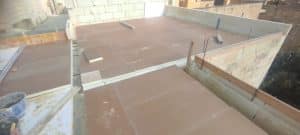WHAT IS BUDGET PLANNING ?
BUDGET PLANNING | Top 9 expenses for a Construction Project
Budget planning is the process of making a plan on how to spend money for your work or needs. Planning expenses for a construction project plays an essential step before starting the construction project. Proper management and execution skills are required for successful budget planning.

The construction budget will help the customers and contractors identify how much time will be required for completing a project, the number of skilled workers you need for the job, and the kinds of machinery and equipment you can use for a perfect finish.
There are several ways to prepare a budget, and it is the experience that helps identify which method to use for different projects. The best way to determine the budget is by dividing the costs into soft and hard costs. Any expense that is not direct construction expense comes under soft cost, and all the tangible assets that we require for the construction comes under hard cost.
Division of the complete expense into hard and soft costs will help in the better management of the budget as well. The various expense that comes under the budget are as follows:
1. BUDGET PLANNING| PROPERTY
The cost of the property varies according to the location and scope of the project. A property in a desirable area, the cost of the land can account for almost more than half of the budget.
Land cost can also be considered as a capital cost, a one-time expenditure. Calculating the correct price from the start will help you in better preparation of the budget.
2. BUDGET PLANNING | CONSULTING FEES AND OTHERS
Based on the needs of your project, you will be meeting different consulting professionals before proceeding with construction. Based on the needs of your project, you will be meeting other consulting professionals before proceeding with construction. Some of them include getting permits from the local government offices, real estate fees, testing fees, etc. It is vital to have a well-prepared plan for estimating the entire cost of the project.
The pre-construction services are only completed when the drawing of the project and permits are approved. It is vital to have a well-prepared plan for estimating the entire cost of the project. A local waste disposal fee for construction works will also be required. Once the construction is over, you are also obliged to pay extra inspection fees.
3. BUDGET PLANNING | RAW MATERIALS
Material expenses contribute to the most widespread part of any given production budget, so it’s essential to check them. In the case of purchase, you get what you pay for. It’s better to get high-quality materials that fall under the budget. Raw materials have ongoing fees, and you may get these expenses quoted from your supplier or contractor.
4. BUDGET PLANNING | LABOR COST
It is challenging to estimate the labor cost as it may vary during the construction process. It is tough to anticipate the required working hours and the workers needed to complete the job initially. It is essential to have in mind the hourly wages necessary for the workers and the necessary time to complete the work.
5. BUDGET PLANNING | MACHINERY AND TOOLS
Every construction project needs machinery and tools of various kinds and sizes. There can be soft costs and hard costs based on the machinery and tools are used. Types of machinery for demolition, grinding, etc., may incur more charges.
Different machinery costs may include costs for rent, delivery, fuel, and maintenance charges. It is always advisable to rent machinery from a reliable supplier to avoid unnecessary extra expenses.
6. BUDGET PLANNING | PROJECT MANAGEMENT
A project management team is considered an essential element for successful construction work. A good project management team helps you to manage the entire construction work properly. Several cost that comes under project management is the cost of safety supplies, the wage for security staff, etc.
8. BUDGET PLANNING| TAXES & UTILITIES
According to the project, sometimes, gas, water, and electrical connections are required, and they incur a good amount of cost. There is also a possibility that sometimes, there can be taxes at the local and state level for construction works. The rate of tax differs based on the construction type and size.
9. BUDGET PLANNING | EMERGENCY CHARGES
As in every other budget, it is essential to consider emergency charges while preparing a budget. Emergencies charges or contingency charges include expenses for unexpected events on the construction site, such as accidents, material upgrades, and other unknown costs.














